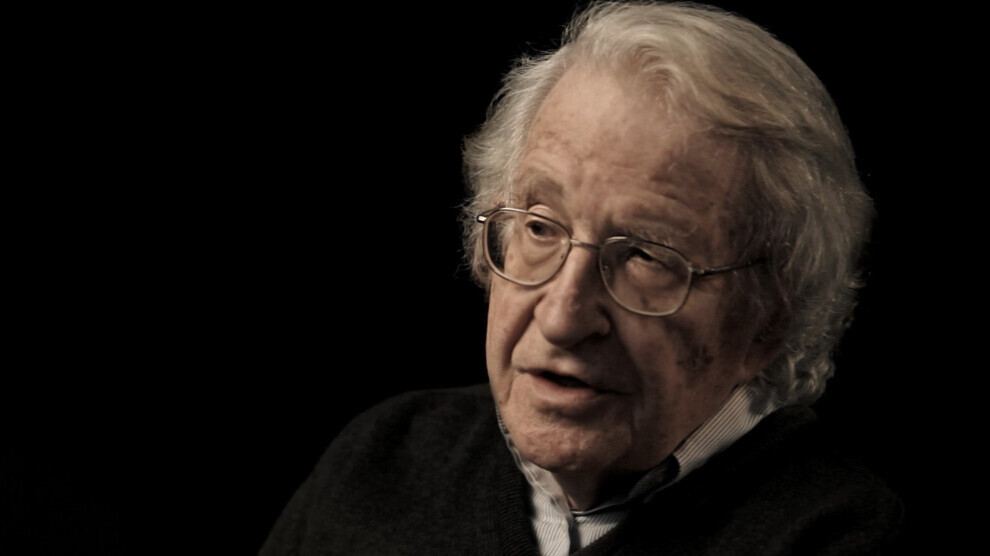
WED, 30 NOV, 2022 - 11:35
MARI YAMAGUCHI, AP
A court in Tokyo has ruled that Japan’s lack of law to protect the rights of same-sex couples to marry and become families violates the constitution.
The ruling by the Tokyo District Court had been closely watched in a country still largely bound by traditional gender roles and family values.
The court, however, said the government’s lack of legislative action is not illegal and threw out plaintiffs’ compensation demands of one million yen (just over £6,000) each.
However, the ruling marked a partial victory for LGBTQ couples.
There is no rationality to justify the absence of legal protection for same-sex couples and “it is in a state of violation” of the Article 24 of the Japanese Constitution, the court said.
Same-sex couples should enjoy the same legal protection as heterosexual couples through marriage, it added.

The plaintiffs and their lawyers welcomed the ruling as “groundbreaking” and urged the government to promptly take steps to enact a law to mitigate the problem.
“I was glad that the ruling acknowledged we have a right to be families,” plaintiff Chizuka Oe told a news conference, adding that her partner of more than 20 years “is my invaluable family no matter what anyone says”.
Ms Oe said the fight continues until there is a real progress, vowing: “This is just the beginning.”
The court ruling was a third of five similar lawsuits filed in 2019 around the country and followed two divisive verdicts in Japan where its governing party has long supported traditional family values.
In March 2021, the Sapporo District Court in northern Japan found the country’s ban on same-sex marriage unconstitutional, but the Osaka District Court in June said that marriage under the 1947 charter is only for female-male unions and that the same-sex marriage ban is valid.
The plaintiffs in the Tokyo case argued that they had been illegally discriminated against by being deprived of the same economic and legal benefits that heterosexual couples enjoy through marriage.
Support for sexual diversity has grown slowly in Japan, but without legal protections, LGBTQ people often face discrimination at school, work and at home, causing many to hide their sexual identities.
Japan is also the only G7 country that bans same-sex marriage.
But ruling says Japan's denial of legal marriage equality is constitutional

TOKYO -- The Tokyo District Court ruled on Wednesday that Japan's lack of a legal system to protect the rights of same-sex couples presents the country with an "unconstitutional situation," a step forward for the LGBT+ community in a nation that remains the only Group of Seven member that does not legally permit same-sex unions.
The decision was Japan's third on marriage equality. The Sapporo District Court ruled in March last year that not recognizing same-sex marriage violates Article 14 of the Constitution, which ensures the right to equality, while the Osaka District Court said in June that it is "constitutional" for Japan to not permit such unions.
Like in the Osaka ruling, Tokyo's court found that Japan's denial of legal marriage equality was constitutional. It also denied requests from the eight LGBT+ plaintiffs for damages of 1 million yen ($7,200) each from the state.
At a news conference after the ruling on Nov. 30, Takako Uesugi, a lawyer for the plaintiffs, told reporters that the court had upheld the "traditional view of family" enshrined in Article 24, Clause 1 of the Constitution, which states that marriage should be between a man and woman.
But in Tokyo, the judge found that the lack of any legal protection for same-sex couples and their families was at odds with the Constitution's Article 24, Clause 2. That clause states "matters pertaining to marriage and the family" should be enacted based on "individual dignity and the essential equality of the sexes."
The judge had recognized the struggles that same-sex couples face without the legal protection that married heterosexual couples enjoy, such as visiting rights for partners in hospitals, Uesugi said. This ruling was "not an outright victory," she added, but the decision that a legal system was needed to guarantee stability for cohabiting same-sex couples and their dependents was "a fantastic outcome" and "a significant step forward for the plaintiffs and for the country."
Yoko Ogawa, a plaintiff in the Tokyo lawsuit, told reporters and crowds outside court after the ruling: "From now on, we can only hope for legislation [on marriage equality]. The judge recognized that there are many difficulties in life for same-sex partners. We need new laws [to address them]."
But the ruling fell short of what many advocates had hoped for. "I can't say I am 100% happy," Hiroshi Ikeda, co-leader of Same-sex Partnership Net, a network that promotes legal protection for same-sex couples, told Nikkei Asia. "The ruling is not as clear as the one in Sapporo, but the recognition of a need for legal rights for same-sex couples with children is significant."
In Sapporo, the court ruled that Japan's denial of same-sex unions was clearly "unconstitutional." In Tokyo, it was found that same-sex couples' lack of rights merely presented an "unconstitutional situation." Ikeda said that this ruling was "milder" than the Sapporo decision.

Japan's LGBT+ community expressed mixed feelings about the outcome.
"I was glad that the court understood some of the difficulties we face because [my partner and I] are not recognized as a family," Rie Fukuda, a plaintiff in another upcoming Tokyo lawsuit on marriage equality, told Nikkei Asia. "But this [ruling] does not mean we have the freedom to marry who we love. It is now even more important for us to raise our voices and for society and the media to take this issue to lawmakers," she added.
Lawsuits have been ongoing in five major Japanese cities -- Tokyo, Osaka, Nagoya, Fukuoka and Sapporo -- since 2019. As of June, 36 plaintiffs have participated in lawsuits asking for judgments on the constitutionality of the current law, which does not envisage marriage between members of the same gender.
The Tokyo ruling triggered calls for Japan's government to move quickly on updating marriage legislation. Makiko Terahara, lawyer and representative director of Marriage For All Japan (MFAJ), implored lawmakers to "proceed with incorporating same-sex couples into [Japan's] existing marriage system" at Wednesday's news conference.
Some progress in the country's LGBT+ rights has been made in recent years. Earlier this month, the Tokyo Metropolitan Government started issuing certificates for LGBT+ couples that help them access public housing and other local government services.
However, these certificates are not legally binding, and same-sex couples still face difficulties over issues such as house hunting, inheritance and obtaining visas.
As of September, 33 countries and regions have legalized marriage equality, according to the Tokyo-based MFAJ.
Wednesday's ruling comes on the tail of the U.S. Senate approving a bill to protect the right to same-sex marriage nationwide after concerns that a conservative majority of justices on the Supreme Court may move to end the right.
In an MFAJ survey conducted in 2019, 72.6% of respondents were in favor of Japan legally recognizing same-sex unions. But in the two chambers of Japan's parliament, only 41% favor marriage equality, according to the group's 2021 data.
Prime Minister Fumio Kishida's ruling Liberal Democratic Party has faced criticism from voters and opposition parties for its conservative approach to LGBT+ rights. Just 11% of its lawmakers are in favor of legalizing same-sex unions, MFAJ data shows. In contrast, 87% of opposition Constitutional Democratic Party politicians are in support








